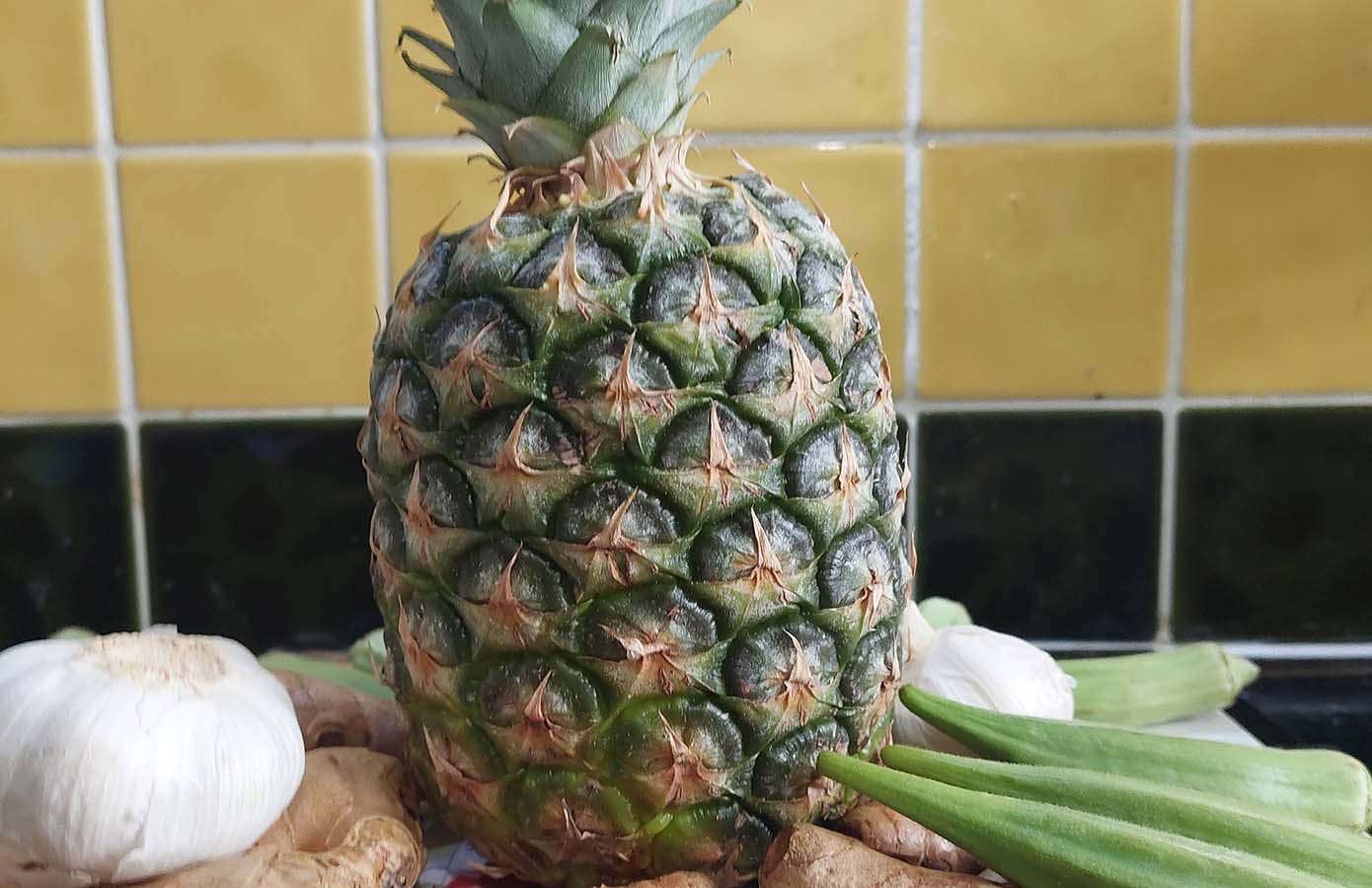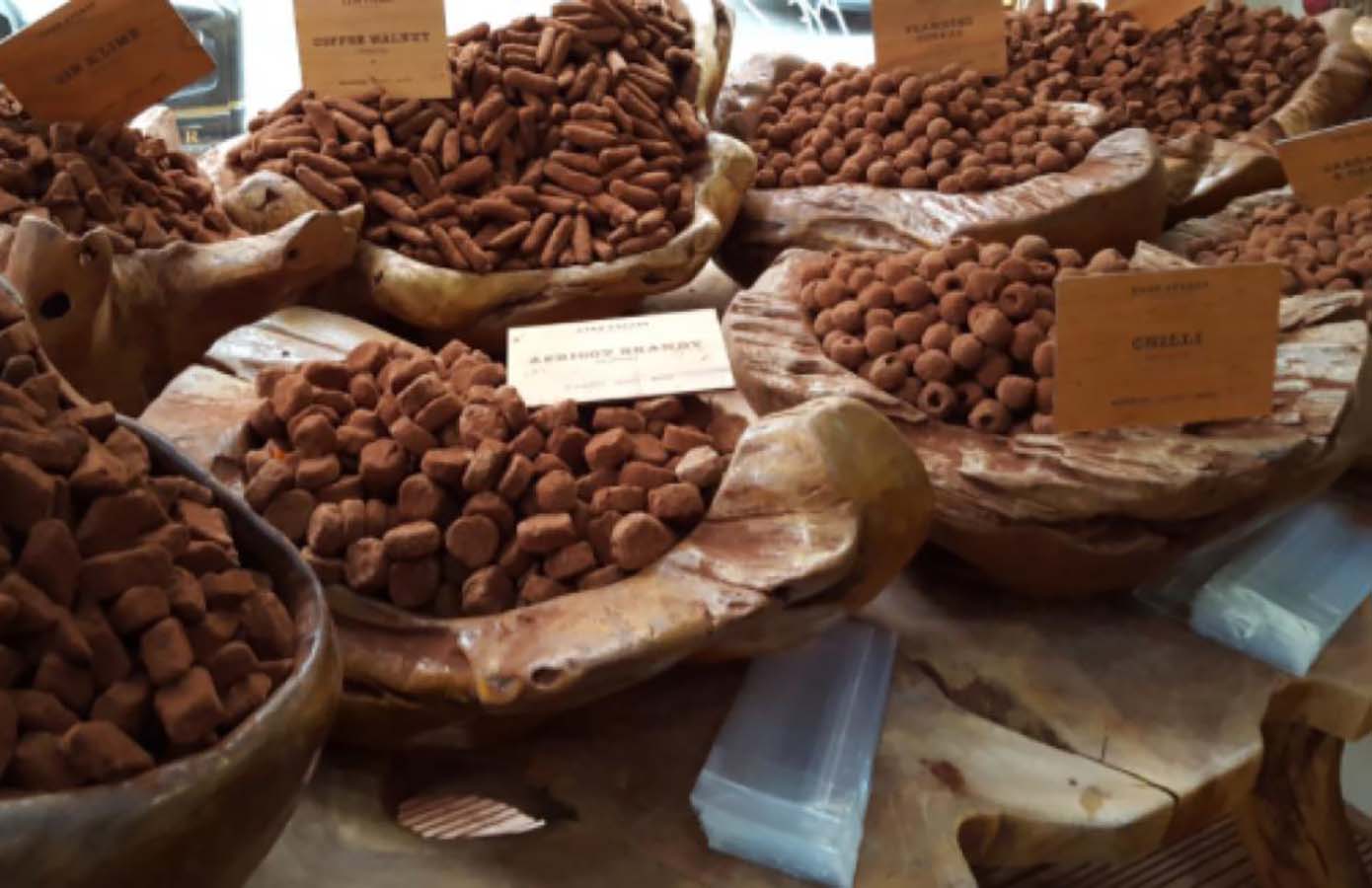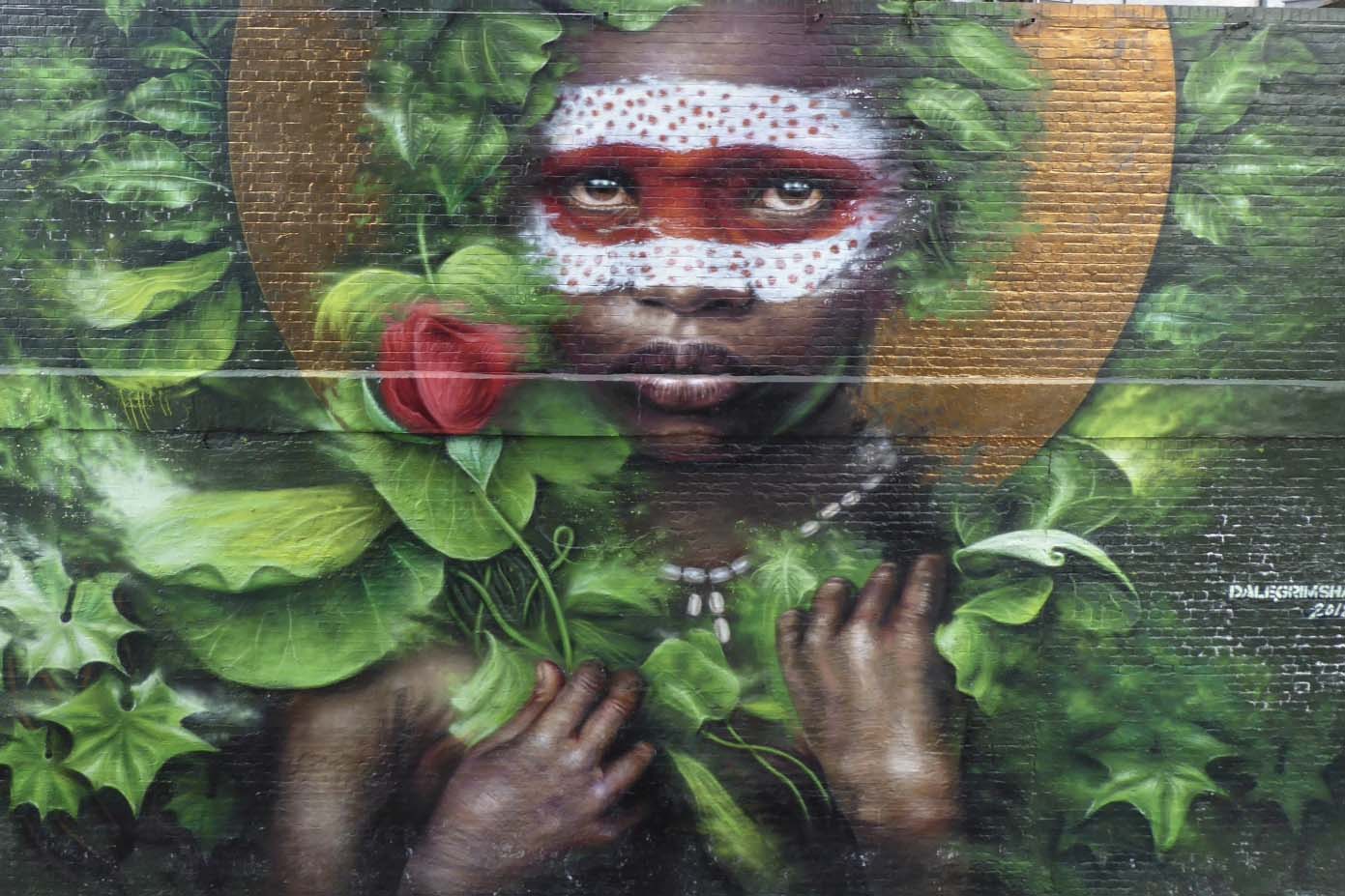
Fruits like pineapple and vegetables like okra, ginger and garlic are good natural remedies. Photo: Lisette Felix.
The Caribbean “medicine cabinet” is full of natural remedies
by LISETTE FELIX
As a child with extremely thick, coarse shoulder length hair, washing it was traumatic. I used to dread that call by my mother “Lisette, come and wash your hair.” In my generation, we very often had to ‘ make do’ and when that happened the “back home remedies,” would be what our parents would fall back on –when they ran out of “proper” British things. Okra was one such item that Dominicans used instead of shampoo. It is a vegetable, with little smell or even taste, and is usually eaten as a side dish. My mum would warm it up slightly, cut it along its centre and release the transparent, slimy liquid with seeds to wash our hair. Growing up in the Windrush generation, I was aware that people from other islands in the UK, also had their go-to remedies for everything from colds to guard against cancer, strengthen their immune systems and much, much more.
Jamaicans used something called Bissy, which comes from the Kola Nut. When crushed into a powder it is used primarily as an antidote to food poisoning. It can be bought on Amazon in the form of ‘a tea’. It does contain elevated levels of caffeine, which can cause an increase in the heart rate. One should always read the package to avoid any harmful side effects. It’s available on Amazon.
Dr Orlando Thomas is a family practitioner at the Thomas Medical Centre in Old Harbour, Jamaica. It is a multi-disciplinary centre offering a variety of types of medicine, including alternative treatments. Dr. T, as he is better known, explains how to make Natural Penicillin promoting a formula that can cure most colds, chest infections, flu, ear injections, sinus infections etc. It includes orange juice, pineapple, onion, garlic, ginger, turmeric, cayenne pepper and raw honey. He recommends using five plants which Caribbeans can find in their backyards, for making ‘bush tea’ remedies. You can see more on Tik Tok.
The following are some of Dr. T’s recommendations.
- Moringa Olivera leaf to aid in the cure of many cancers and in diabetes.
- Mango leaf – for the nervous system and to aid in the cure of tremors.
- Guava Leaf – to help lower blood sugar, cholesterol, blood pressure and chronic diarrhoea.
- Avocado – for joint pains, back pain, and headaches.
- Soursop – used in the cure of cancer because it improves the immune system and helps the body to kill cancer cells.
The Guyanese (situated in South America) have many home remedies for different ailments. One is called a poultice, which is usually various leaves that are grounded together and heated into a sticky mass and used to treat anything from an abscess to ingrown toenails.
A word of caution. Always use common sense if you want to collect plants or leaves for medicinal purposes when you’re in the Caribbean. Go with local people who are familiar with their surroundings and can point out foliage like the Manchineel tree, which is native to countries including the Caribbean and the Americas and can kill you just by standing underneath it, if it happens to be raining.
Meanwhile, one treatment I’m familiar with, is the natural antibiotic remedy for Covid my friend Marilyn * passed on. It consists of; ½ an onion,1 or 2 peeled cloves of garlic, 1 piece of ginger root. and ½ a lemon. Another one is for colds and flu. It consists of 1 pineapple, two stems of turmeric and some garlic. In both instances, boil it until it bubbles, strain it so that only the liquid remains and drink as you would a hot lemon cold remedy. You can also use a blender.
*Not her real name
* This content is provided for informational purposes only and is not intended to substitute for professional medical advice, diagnosis, or treatment.
Enter the world of African gastronomy with Chishuru, a culinary gem that tantalizes taste buds and showcases the diversity of flavors embedded in the continent’s rich food culture. Originating from Nigeria, Chishuru represents a fusion of traditional ingredients and contemporary flair, making it a standout in the global culinary scene.
At its essence, Chishuru is a celebration of fresh, seasonal produce, often featuring a vibrant medley of vegetables such as leafy greens, tomatoes, and okra. The dish is elevated with a harmonious blend of spices, reflecting the depth and complexity that characterize African cuisine.
One of Chishuru’s distinctive qualities is its versatility. Whether served as a vegan delight or accompanied by succulent meats, the dish adapts to various preferences and dietary choices. The result is a symphony of flavors that captivates diners and introduces them to the authentic tastes of Africa.
Chishuru’s journey from local tradition to international recognition mirrors the global appreciation for diverse and bold culinary experiences. As food enthusiasts seek new and exciting flavors, Chishuru takes its place as a flavorful ambassador, inviting everyone to savor the richness and complexity of African cuisine. In a world that celebrates culinary diversity, Chishuru stands out as a testament to the incredible tapestry of flavors waiting to be explored and enjoyed.
















